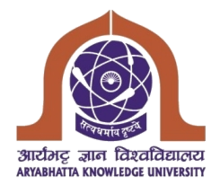An Anti-Ragging Cell in a B.Ed. College is responsible for preventing and addressing ragging incidents, ensuring a safe and respectful environment for students. It functions under the UGC Regulations on Curbing the Menace of Ragging in Higher Educational Institutions, 2009, and guidelines set by the National Anti-Ragging Helpline.
Anti-Ragging Cell:
- Dr. Kumar Mritunjay Rakesh, Principal (Chairperson)
- Rekha Kumari, Asst. Prof. (Co-Ordinator)
- Ajay Kumar Singh, Asst. Prof. (Member)
- Anand Prakash, Asst. Prof. (Member)
- Dr. Ramakant Pandey, Ex. Prof. PU (NGO Member)
- Lalan Das, Parents Representative (Member)
- Sunita Raman, Parents Representative (Member)
- Jyoti Kumari, Student Session 2023-25 (Member)
- Gaurav Kumar, Student Session 2024-26 (Member)
- Santosh Kumar, Account Asst. (Member)
- Shankar Raut, Support Staff (Member)
- Dr. Mahendra Kumar Singh, Dean Student Welfare, AKU (Member)
- Abhishek kumar Ojha,Sub inspector,Industrial thana ,Hajipur (Member)
Functions of the Anti-Ragging Cell
- Preventive Measures
- Display anti-ragging posters and helpline numbers across the campus.
- Obtain anti-ragging affidavits from students and parents at the time of admission.
- Conduct awareness programs and workshops on the consequences of ragging.
- Monitoring & Surveillance
- Install CCTV cameras in sensitive areas like hostels and common spaces.
- Maintain anonymous complaint boxes for students to report concerns.
- Conduct regular surprise inspections in hostels and campus areas.
- Handling Complaints
- Set up an anonymous reporting system via email or a complaint box.
- Investigate complaints through a fair and confidential inquiry process.
- Take strict disciplinary action against offenders as per UGC guidelines.
- Coordination with Authorities
- Maintain close contact with the police and local authorities if legal action is required.
- Submit reports to the university/UGC on anti-ragging measures and cases handled.
- Reporting & Punishments
- Minor Punishments: Warnings, community service, suspension from classes.
- Major Punishments: Suspension from college, expulsion, legal action.
- Helpline: National Anti-Ragging Helpline – 1800-180-5522
Anti-Ragging Policy for Maitreya College Of Education and Management
- Introduction
This policy aims to create a safe and respectful academic environment by strictly prohibiting ragging in any form. It follows the UGC Regulations on Curbing the Menace of Ragging in Higher Educational Institutions, 2009, and guidelines issued by the Supreme Court of India and other regulatory bodies.
- Definition of Ragging
Ragging includes any act of physical, mental, emotional, or psychological abuse on a student by peers or seniors that:
- Causes discomfort, humiliation, or fear.
- Involves verbal abuse, teasing, or threats.
- Forces a student to do acts against their will.
- Causes physical harm, injury, or sexual abuse.
- Affects a student’s academic performance or mental health.
- Objectives of the Anti-Ragging Policy
- To prevent and eliminate ragging on campus.
- To create awareness among students about the consequences of ragging.
- To provide a mechanism for students to report ragging incidents confidentially.
- To take strict disciplinary action against offenders.
- Preventive Measures
- All students and parents must sign an anti-ragging affidavit at admission.
- Anti-ragging awareness programs will be conducted at the beginning of each academic session.
- Posters and banners with anti-ragging messages and helpline numbers will be displayed across the campus.
- CCTV surveillance will be installed in key areas like hostels, corridors, and common spaces.
- Faculty and staff will conduct surprise checks in hostels and other student gathering areas.
- Complaint Mechanism
Students can report ragging through:
- A confidential complaint box placed in key locations.
- Directly approaching any member of the Anti-Ragging Cell.
- Sending an email to the Anti-Ragging Cell (official email to be provided).
- Calling the National Anti-Ragging Helpline (1800-180-5522).
The Anti-Ragging Cell will conduct an inquiry within 7 days and take appropriate action.
- Disciplinary Actions
- If a student is found guilty of ragging, they may face:Warning and Counseling (for minor first-time offenses).
- Fine up to RS 50,000.
- Suspension from attending classes or hostel eviction.
- Expulsion from the college in severe cases.
- Legal action, including police complaints, if necessary.
- Responsibilities of Faculty and Staff
- Identify and report any suspected cases of ragging.
- Conduct regular monitoring in classrooms, hostels, and common areas.
- Participate in awareness programs and ensure compliance with anti-ragging rules.
- Conclusion:
This policy ensures that students feel safe, respected, and protected during their academic journey. Any student found violating the anti-ragging rules will be held accountable as per institutional and legal provisions.


